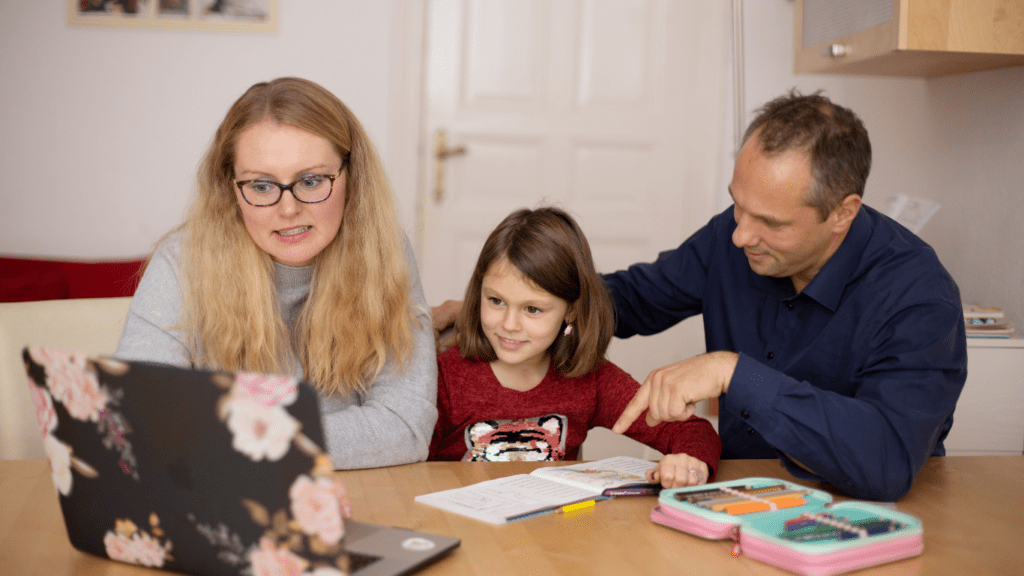As a mom navigating the ever-changing landscape of parenting, I know how crucial it is to stay ahead of the curve. With 2025 just around the corner, new trends are emerging that could reshape how we approach raising our kids.
From technology integration to mental health awareness, these shifts are designed to make parenting more effective and enjoyable. In this article, I’ll explore the top 10 parenting trends that every mom should be aware of.
These insights not only reflect the evolving needs of our children but also empower us to adapt our parenting styles for a brighter future. Let’s dive into what’s on the horizon and how we can embrace these changes to enhance our family lives.
Overview of Parenting Trends
I observe several key trends shaping parenting practices as we move into 2025. These trends reflect changing societal norms, technological advancements, and an increased focus on children’s mental well-being. Here’s a closer look at these important trends.
- Technology Integration: Parents increasingly use technology to support education and communication. Apps for tracking developmental milestones and fostering learning experiences are becoming staples in modern parenting.
- Mental Health Awareness: I notice a heightened focus on mental health. Parents recognize the importance of nurturing children’s emotional intelligence and seeking professional help when necessary.
- Flexible Parenting Styles: Many moms adopt hybrid parenting methods, blending traditional and contemporary practices. Flexibility in discipline, education, and lifestyle choices fosters a more personalized approach tailored to each child’s needs.
- Sustainable Living: Sustainable practices gain traction. Parents opt for eco-friendly products and emphasize the importance of environmental responsibility to instill these values in their children from an early age.
- Community Support: Building strong community networks emerges as a vital trend. Moms increasingly seek support from friends, family, and online platforms to share experiences and resources.
- Diversity and Inclusion: Embracing diversity reflects changing societal values. Parents prioritize exposing their children to various cultures, ideas, and experiences to cultivate empathy and understanding.
- Health-Conscious Parenting: Healthy lifestyles become paramount, with an emphasis on balanced diets and physical activity. Parents promote habits that contribute to long-term well-being.
- Mindfulness Practices: Many parents incorporate mindfulness techniques into daily routines. Practices such as meditation and yoga help manage stress and enhance family connections.
- Work-Life Balance: The pursuit of work-life balance continues to rise. Moms seek flexible work hours and remote job opportunities to spend quality time with their children while meeting professional commitments.
- Education Alternatives: An increasing number of parents explore alternative education models. Homeschooling and unschooling gain popularity as parents seek tailored approaches that foster individual learning paces and interests.
Trend 1: Mindful Parenting
Mindful parenting emphasizes being present and engaged in the moment while nurturing children. This trend fosters emotional well-being and strengthens family bonds.
Benefits of Mindfulness
- Improved Emotional Regulation: Mindfulness enhances parents’ and children’s ability to manage emotions, leading to calmer interactions during stress.
- Stronger Connections: Practicing mindfulness improves communication and empathy, creating deeper relationships between family members.
- Increased Awareness: Mindful parenting heightens awareness of children’s needs, promoting a supportive environment tailored to their experiences.
- Reduced Stress: Mindfulness techniques lower stress levels for parents, enabling them to handle challenges with greater resilience.
- Enhanced Cognitive Skills: Mindfulness boosts focus and attention in children, contributing to better learning and behavioral outcomes.
Techniques to Implement
- Mindful Breathing: Taking a few moments daily for deep breaths can help center family members and foster a calm atmosphere.
- Active Listening: Engaging in conversations with full attention demonstrates respect and validates children’s feelings.
- Mindfulness Exercises: Incorporating simple mindfulness activities, like body scans or guided meditations, reinforces emotional awareness.
- Gratitude Practices: Regularly discussing what each family member is thankful for cultivates positivity and appreciation.
- Nature Walks: Spending time outdoors encourages mindfulness through sensory experiences, promoting a connection with the environment.
Incorporating mindful parenting practices enhances family life and nurtures emotional health, preparing parents and children for the challenges ahead.
Trend 2: Technology Integration
Technology integration profoundly influences parenting practices as we approach 2025. Balancing its benefits and drawbacks is crucial for nurturing well-rounded children.
Balancing Screen Time
Balancing screen time involves setting boundaries for device usage. Establishing daily limits helps prevent excessive screen exposure and promotes healthier habits. I find that designated “tech-free” times, such as during meals or family activities, foster better communication and connections.
Engaging children in outdoor play, reading, or creative projects offers alternatives to screen time, encouraging active participation in their surroundings. Parents must model healthy habits, demonstrating appropriate device use and encouraging mindful consumption.
Educational Apps to Consider
Educational apps enhance learning by making it interactive and fun. I recommend several high-quality apps that cater to various age groups and learning styles.
| App Name | Age Range | Focus Area |
|---|---|---|
| ABCmouse | 2-8 years | Early literacy |
| Khan Academy Kids | 2-8 years | Math, reading, art |
| Tynker | 7-14 years | Coding skills |
| Prodigy Math Game | 6-14 years | Math proficiency |
| Duolingo | 4 years+ | Language learning |
Selecting age-appropriate apps promotes skill development while keeping kids engaged. Regularly reviewing content ensures it aligns with educational goals and supports learning effectively.
Trend 3: Eco-Friendly Parenting
Eco-friendly parenting focuses on nurturing children while respecting the environment. This trend encourages sustainable practices, promoting a healthier future for families and the planet.
Sustainable Products
Sustainable products play a crucial role in eco-friendly parenting. Selecting eco-friendly diapers, reusable bags, and organic toys minimizes waste and exposure to harmful chemicals. Parents can opt for brands that prioritize ethical production, offer recyclable materials, and utilize sustainable packaging.
Some popular sustainable brands include Bambo Nature, which provides eco-friendly diapers, and Green Toys, known for their safe, recyclable playthings. Choosing these options nurtures children’s well-being and instills environmental values.
Reducing Family Carbon Footprint
Reducing the family carbon footprint remains a vital aspect of eco-friendly parenting. Parents can implement simple changes like using public transportation, biking, or walking instead of driving.
Implementing energy-efficient practices, such as using LED light bulbs and unplugging devices when not in use, contributes to a reduced carbon footprint. Incorporating plant-based meals into the family’s diet can also have a positive impact.
Educating children about recycling, composting, and conserving water fosters environmental responsibility and encourages them to become eco-conscious adults.
Trend 4: Focus on Mental Health
Mental health has gained significant attention in parenting practices, emphasizing emotional well-being for both moms and children. Prioritizing mental health can lead to a nurturing environment that supports healthy emotional development.
Resources for Moms
Parents now rely on numerous resources to navigate mental health challenges. Websites like Mental Health America and NAMI offer valuable information and support. Apps such as Headspace and Calm provide mindfulness exercises tailored for busy moms.
Online forums and local support groups foster connection among parents facing similar challenges. Additionally, books like “The Whole-Brain Child” by Daniel J. Siegel and Tina Payne Bryson offer insights into emotional development.
Encouraging Emotional Intelligence in Kids
Fostering emotional intelligence in children is essential for their mental health. Teaching kids to recognize and express their feelings cultivates resilience and empathy. Techniques like role-playing can help children understand various emotions in different contexts.
Encouraging open discussions about feelings creates a safe space for kids to share their thoughts. Implementing activities like gratitude journaling promotes positivity. Lastly, modeling self-care practices illustrates the importance of mental well-being, showing kids that prioritizing mental health is crucial.
Trend 5: Diverse Family Structures
Diverse family structures are becoming increasingly recognized as essential components of modern parenting. As society evolves, it’s crucial for moms to embrace and understand the variety of family dynamics present in 2025.
Celebrating Different Family Models
Celebrating different family models includes recognizing single-parent families, blended families, and families with same-sex parents. Each model brings unique strengths and challenges. Single parents often develop strong bonds through shared experiences.
Blended families benefit from diverse perspectives, which can foster adaptability. Same-sex parents contribute to discussions about equality and acceptance. Understanding these dynamics helps create a more inclusive environment and provides children with a broader view of familial love.
Inclusivity in Parenting Practices
Inclusivity in parenting practices promotes acceptance and understanding among children. This trend encourages exposing kids to various cultural backgrounds, traditions, and lifestyles. Engaging in conversations about diversity helps children develop empathy and respect for others.
Utilizing books, films, and educational resources from different cultures enhances children’s understanding of the world. Families can also participate in community events celebrating diversity, nurturing a sense of belonging and encouraging friendships among kids from diverse backgrounds.
Trend 6: Personalized Education
Personalized education is reshaping the learning landscape, allowing for tailored educational experiences that align with children’s unique strengths and interests.
Custom Learning Plans
Custom learning plans create a tailored approach to education that enhances individual growth and engagement. These plans can include specific goals addressing academic skills, social-emotional development, and interests.
For example, a plan might focus on improving reading comprehension while integrating a child’s passion for animals. Additionally, parents collaborate with educators to track progress and adjust strategies based on feedback and assessments. This adaptability fosters a child’s natural curiosity and motivation to learn, ultimately improving outcomes.
Home Schooling vs. Traditional Schooling
Home schooling and traditional schooling offer distinct benefits and challenges, allowing parents to choose the best fit for their families. Home schooling provides flexibility in scheduling and curriculum selection, enabling customized learning experiences.
For instance, parents can integrate hands-on projects or field trips that align with their child’s interests, such as visiting science museums to enhance biology lessons. Alternatively, traditional schooling offers structured environments and social interactions, crucial for developing cooperative skills.
While some children thrive in the routine of a classroom setting, others excel in the personalized atmosphere of home schooling. Ultimately, the choice depends on the child’s learning style and family dynamics.
Trend 7: Holistic Health Approaches
Holistic health approaches are becoming increasingly popular among parents in 2025, emphasizing a comprehensive view of well-being that includes physical, emotional, and social health. These approaches focus on nurturing the whole child and creating a balanced environment.
Nutrition and Wellness
Nutrition plays a vital role in children’s overall health, with parents incorporating whole foods, organic options, and plant-based diets. Nutrient-dense foods like fruits, vegetables, grains, and lean proteins fuel children’s growth and development.
Parents seek out educational resources to understand the benefits of diverse foods, using meal planning apps for guidance. Creating a positive mealtime environment promotes healthy eating habits.
Children can participate in cooking and gardening, fostering a connection to food and its sources. Health screenings and regular check-ups with pediatricians support wellness and preventative care.
Incorporating Physical Activity
Physical activity has a significant impact on children’s health and development. Parents encourage regular exercise by integrating it into daily routines. Activities such as family hikes, bike rides, and sports play connect families while promoting fitness.
Children can explore different sports, dance classes, or martial arts, helping them find passions that suit their interests. Designing a play-friendly home environment, with access to outdoor spaces and equipment, encourages active play.
Many parents utilize technology, such as fitness apps or video games that promote movement, to make physical activity engaging and fun.
Trend 8: Global Awareness
Global awareness has become a crucial facet of modern parenting, expanding children’s understanding of diverse cultures and global issues. As families navigate an interconnected world, raising globally conscious kids fosters empathy and inclusivity.
Raising Culturally Conscious Kids
Developing cultural awareness in children strengthens their ability to appreciate diversity. Parents can encourage this awareness through exposure to different cultures via travel, local cultural festivals, and multi-ethnic communities.
Discussing cultural differences during family activities or via diverse storybooks helps children understand and respect various traditions and values. Engaging in multilingual environments prepares kids for future global interactions, broadening their perspectives and cultivating curiosity about the world.
Resources for Global Education
Accessing global education resources enhances children’s understanding of worldwide issues. Educational platforms like Global Education Resources, Facing History, and UNESCO provide materials focusing on social justice, culture, and global citizenship. Interactive platforms like Google Earth and various online cultural exchange programs offer immersive experiences that promote learning about different countries.
Additionally, documentaries and educational podcasts about global events and cultures can spark meaningful discussions and inspire active global awareness in children.
Trend 9: Community Engagement
Community engagement plays a crucial role in modern parenting. As I navigate the demands of raising children, building connections with local resources and families becomes vital for creating a supportive environment.
Building Support Networks
Building strong support networks enhances parenting experiences. I can connect with other parents through local groups, online forums, and social media platforms.
Resources such as Meetup or Facebook groups facilitate finding connections based on shared interests and parenting challenges. Engaging with community centers and schools provides access to workshops and events that foster relationships with other families.
Sharing experiences and advice within these networks helps alleviate the pressures of parenting.
Volunteering Opportunities for Families
Volunteering opportunities create impactful experiences for families. Participating in community service fosters empathy and a sense of responsibility in children. Organizations often seek family volunteers for activities like local clean-ups, food drives, or mentoring programs.
Coordinating volunteer efforts as a family strengthens bonds and cultivates shared values. I can take advantage of websites like VolunteerMatch or Idealist to discover opportunities that align with our family’s interests. Through volunteering, I teach my children the importance of giving back to the community while enriching our family life.
Trend 10: Parental Self-Care
Parental self-care has become crucial in 2025 as moms recognize the need to prioritize their own well-being. Focusing on self-care ultimately strengthens family dynamics and fosters a more balanced home environment.
Importance of Self-Care
Self-care directly impacts physical, mental, and emotional health. When I practice self-care, I reduce stress, enhance my mood, and improve my overall well-being. Prioritizing my needs teaches my children the importance of self-compassion and resilience.
Modeling healthy self-care routines fosters a culture of well-being within my family, encouraging open conversations about emotions and mental health.
Tips for Busy Moms
- Schedule “Me Time”: Block out specific times for self-care activities in my calendar, treating them as appointments.
- Practice Mindfulness: Integrate short mindfulness practices into daily routines, such as 5 minutes of deep breathing.
- Engage in Physical Activity: Choose activities I enjoy, like jogging or yoga, to make exercise a rewarding experience.
- Explore New Hobbies: Dedicate time to pursue interests like painting or writing, creating opportunities for personal expression.
- Connect with Others: Reach out to friends or join support groups to share experiences and foster connections.
- Limit Screen Time: Set boundaries around technology use to make space for self-reflection and relaxation.
- Plan Family Outings: Organize family excursions that combine self-care with quality time, such as walks in nature or visits to art museums.
- Prioritize Sleep: Establish a consistent bedtime routine to ensure adequate rest and recharge.
Incorporating these tips can positively influence my family’s dynamics, demonstrating the importance of self-care while enhancing my ability to support my children effectively.


 Reginalita Leeons played a vital role in building the supportive environment that Motherhood Tales Pro is known for. With a strong background in wellness and outreach, she guided the development of resources that address the holistic needs of mothers. Her compassionate input ensured that every offering—from blog posts to wellness tools—felt thoughtful, inclusive, and empowering.
Reginalita Leeons played a vital role in building the supportive environment that Motherhood Tales Pro is known for. With a strong background in wellness and outreach, she guided the development of resources that address the holistic needs of mothers. Her compassionate input ensured that every offering—from blog posts to wellness tools—felt thoughtful, inclusive, and empowering.